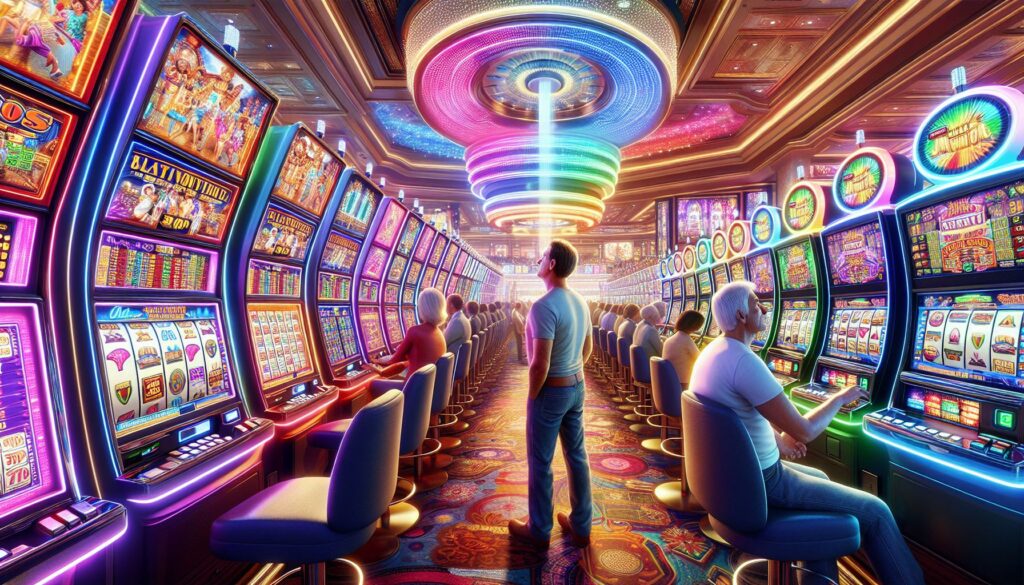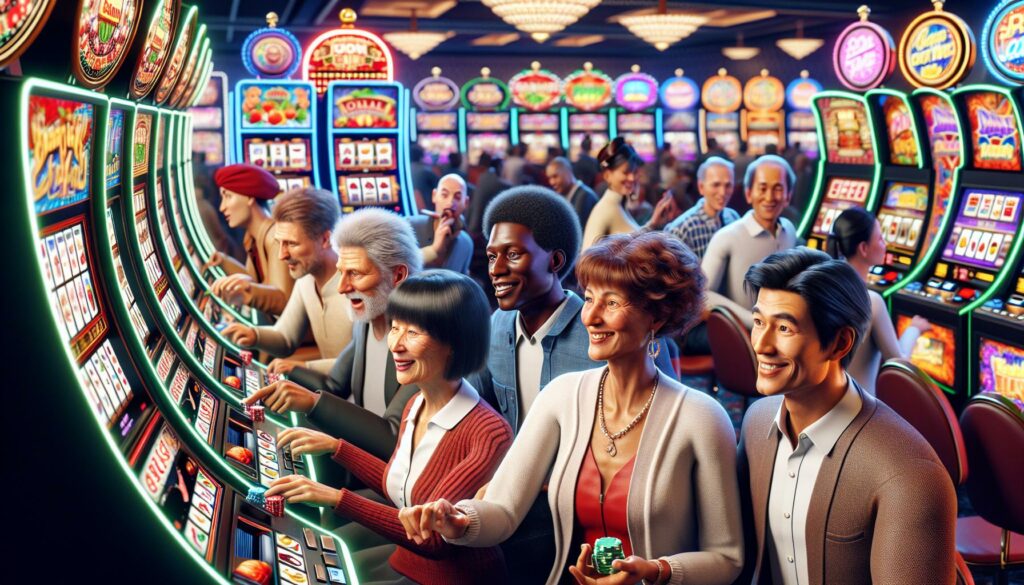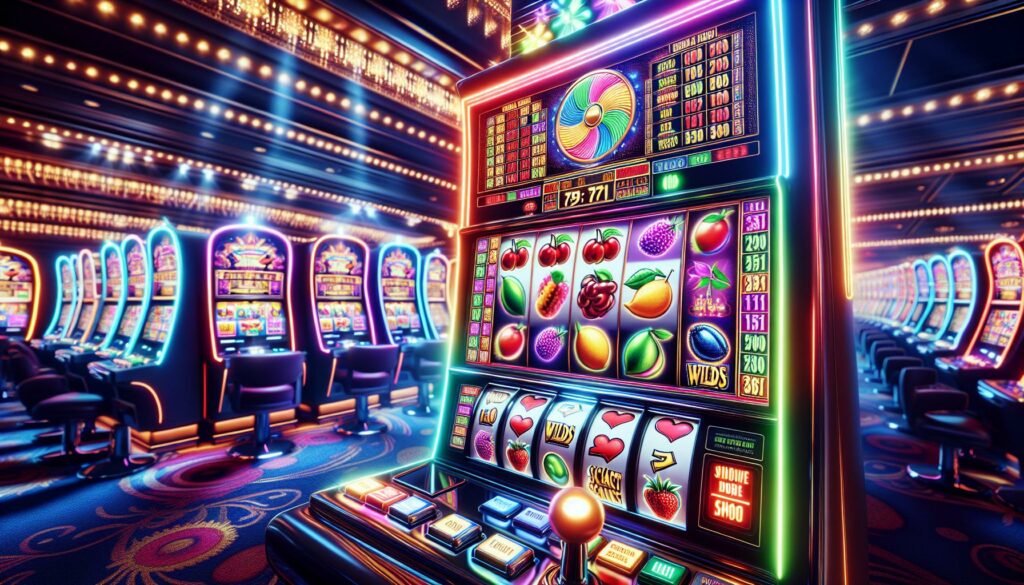Walking into a casino, the bright lights and the sound of spinning reels can be mesmerizing. Slot machines draw players in with promises of excitement and big wins. But have you ever wondered just how much control casinos really have over these machines? It’s a question that sparks curiosity and debate among gamblers and gaming enthusiasts alike.
Casinos use sophisticated technology and algorithms to manage their slot machines, but the extent of that control is often misunderstood. Some believe that casinos can manipulate outcomes at will, while others argue that regulations ensure fairness. In this article, I’ll dive into the mechanics behind slot machines and clarify what casinos can and cannot do when it comes to controlling the games you love.
Key Takeaways
- Random Number Generators (RNG): Slot machines operate using RNG technology, which ensures each spin’s outcome is independent and fair, preventing casinos from manipulating individual game results.
- Return to Player (RTP): Casinos can adjust RTP percentages within regulatory limits, impacting the overall player experience without altering the randomness of each spin.
- Regulatory Compliance: Strict regulations govern slot machine operations, ensuring fairness and integrity in gambling, which casinos must adhere to in order to maintain trust and legality.
- Player Behavior Tracking: Casinos use data from player behavior to tailor promotions and enhance player engagement, but this does not influence the randomness of spin outcomes.
- Myths Debunked: Common misconceptions include beliefs that machines can be “”hot”” or “”cold”” and that timing affects outcomes. In reality, each spin is entirely random and unaffected by past performance.
- Casino Control: While casinos can’t control individual outcomes, they can manage the overall gaming environment through programming and promotional strategies, maintaining a balance between player satisfaction and business objectives.
Can Casinos Control Slot Machines
Slot machines represent one of the most popular forms of gambling in casinos. These machines employ a random number generator (RNG) to determine outcomes, ensuring fairness and randomness. The RNG produces thousands of random numbers every second, which correlates to the symbols displayed on the reels when a player spins.
Casinos install various types of slot machines, including traditional three-reel machines and modern video slots. Each machine operates independently, yet all follow similar algorithms that dictate payout percentages. The payout percentage, also known as Return to Player (RTP), typically ranges from 85% to 98%, meaning casinos keep a specified percentage of money wagered over time.
Understanding the mechanics of slot machines helps clarify misconceptions about casino control. Many players believe that casinos influence individual machine results. In reality, the RNG ensures that each spin’s outcome remains unpredictable. However, casinos can adjust the RTP of their machines within regulatory guidelines, allowing for a diverse gaming experience.
In addition to RNGs, slot machines use complex software and hardware to track player behavior. This data enables casinos to tailor promotions and bonuses, enhancing player engagement. While the machines themselves operate independently, the casino has tools to encourage longer play sessions through strategic marketing tactics.
Thus, while casinos cannot control individual spins, they can manage the broader context of player experience and machine performance through software adjustments and marketing strategies.
The Mechanics of Slot Machines
Slot machines operate using advanced technology that ensures fair play and varied experiences for players. Understanding their mechanics involves examining two critical components: Random Number Generators (RNG) and Return to Player (RTP) percentages.
Random Number Generators
Random Number Generators (RNG) serve as the core technology behind slot machines. RNG systems produce thousands of random numbers each second, deciding the outcome of spins independent of player actions. When I hit the spin button, the RNG selects a number corresponding to a specific combination of symbols displayed on the machine’s reels. The sheer speed and randomness of this process highlight the fairness embedded within the machine’s design. This technology prevents casinos from controlling the results of individual spins, ensuring that every game adheres to the principles of chance.
Return to Player Percentage
Return to Player (RTP) percentages represent the average amount a player can expect to win back over time. I often see RTP values ranging from 85% to 98%, depending on the machine type and house rules. Casinos configure these percentages based on the desired gaming experience, balancing player attraction with revenue generation. While casinos are unable to manipulate the outcome of each spin, they can adjust RTP values within regulatory guidelines, providing a diverse array of machines suited to different player preferences. This strategic management of RTP, along with other promotional efforts, enhances player engagement without compromising the integrity of the game.
Casino Control Over Slot Machines
Casinos maintain a degree of control over slot machines, influenced by regulations and technology. Understanding this control can clarify the relationship between players and machines.
Regulation and Compliance
Regulatory bodies impose strict guidelines on slot machine operations to ensure fairness in gambling. I find that these regulations dictate standards for the use of Random Number Generators (RNGs), payout percentages, and machine configurations. For example, in the U.S., the minimum RTP typically ranges from 75% to 90%, with some states enforcing even higher thresholds. Compliance with these standards helps maintain integrity, ensuring a level playing field for all players.
Casino operators must regularly submit their machines for testing and approval by independent labs. These tests verify that the machines meet required performance standards, mitigating the potential for manipulation. By adhering to these regulations, casinos foster trust among players, which is essential for sustaining their business in a competitive market.
Programming and Settings
Casinos exert control over slot machines primarily through programming and settings adjustments. Each machine is programmed to fulfill specific RTP percentages, affecting the expected return on player investment. Adjustments to these RTP settings happen within regulatory allowances, allowing casinos to fine-tune the player experience while maximizing potential revenue.
Additionally, manufacturers design machines with software that tracks player behavior. This data enables casinos to implement strategic promotions tailored to player preferences. Despite the machines operating randomly, I recognize that programming choices, such as bonus rounds and progressive jackpots, significantly impact player engagement and retention.
Through both regulation compliance and machine programming, casinos ensure an appealing gaming environment while maintaining fairness.
Myths and Misconceptions
Many myths and misconceptions surround how casinos control slot machines. Understanding the truth behind these beliefs clarifies the operations of these popular gaming devices.
Common Beliefs About Slot Machine Control
- Casinos Rig Machines: Many believe casinos rig slot machines to ensure they never win. In reality, slot machines use random number generators (RNG) that prevent casinos from altering individual outcomes.
- Hot and Cold Machines: Some players think machines can be hot or cold based on past performance. Each spin is independent due to the RNG, meaning past outcomes don’t affect future results.
- Casino Employees Influence Results: There’s a common belief that casino staff can manually control or alter outcomes. This isn’t possible; the RNG ensures that results are random and fair.
- Timing Affects Outcomes: Players might think that timing their spins will lead to better wins. However, every outcome is entirely random regardless of when the player spins.
- Casinos Control Payout Percentages: While casinos can adjust Return to Player (RTP) percentages within regulatory guidelines, they can’t control individual spins. Adjustments are made to ensure games remain appealing while adhering to compliance requirements.
- Bonus Features Manipulated: Some believe that casinos manipulate bonus features to limit payouts. In truth, bonus rounds and features are predetermined by the software, contributing to the overall randomness and fairness.
- Perception of Patterns: Players often see patterns in outcomes, leading to the belief that machines behave in a certain way. This perception is a cognitive bias; the RNG ensures every outcome is independent and random.
- Real-Time Monitoring Alters Experience: There’s a belief that real-time monitoring can influence individual machine performance. While casinos utilize player tracking for promotional purposes, they can’t change core game mechanics based on player behavior.
Understanding these myths helps dispel misconceptions about slot machines, revealing how they function within the regulatory framework and technological landscape of casinos.
tightly regulated environment
Casinos operate within a tightly regulated environment that shapes how slot machines function. While they can’t manipulate individual outcomes due to the random number generator, they do have the ability to influence the overall gaming experience through RTP adjustments and strategic promotions. This balance ensures that players enjoy a fair chance while casinos remain profitable.
Understanding the mechanics behind slot machines helps demystify the gaming experience. It’s clear that the allure of these machines is driven by both chance and the careful design of their operations. With this knowledge, players can approach their gaming sessions with a clearer perspective on the role of casinos in shaping their experience.



